Chelsea 4 Tottenham 2: Three observations from Wembley
Seb Stafford-Bloor was at Wembley to watch Chelsea edge out Spurs for a place in the FA Cup final.
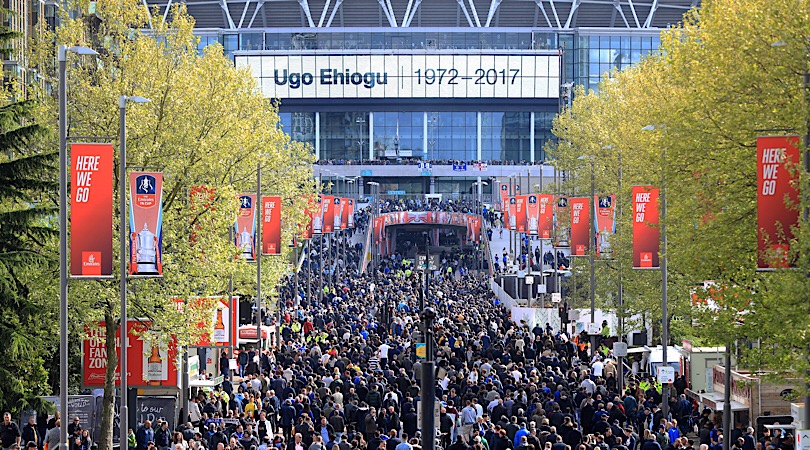
Wembley, where nobody feels the same leaving as they did on arrival. Win and the jaunt up Olympic Way, side by side with fellow supporters, becomes the occasion’s nostalgic emblem, but lose and you’ll be left with nothing but memories of those hollow concourses and that tedious trudge back to the tube station.
New Wembley may lack the higgildy seniority of its predecessor, but it succeeds in drawing the strictest lines between success and failure. Just as it should. This is not a place where performance matters or where positives can be taken in spite of a result, but a thin-aired venue which respects only the score. It’s English football’s death zone: climb up the hill at your own risk and be under no illusion as to what’s on the line.
On Saturday, it was London pride and a place in the FA Cup final. Chelsea and Tottenham currently sit first and second in the Premier League, but this is a rivalry which goes beyond the transience of the table: two sets of supporters who loathe each other and resent what the other appears to represent and two sets of players who have allowed that animosity to leak onto the pitch.
Maybe the old cup has been devalued - in fact, of course it has - but this is the kind of pure rivalry which will always simmer with gravitas.
Both managers sprung selection surprises. Antonio Conte was without the injured Gary Cahill, for whom Nathan Ake deputised, but opted to leave Eden Hazard and Diego Costa on the substitutes’ bench. Mauricio Pochettino, who has rotated all the way through the competition, chose Kieran Trippier ahead of Kyle Walker, preferring the former’s reliable delivery to the latter’s more incendiary raiding threat. A plot twist on the other flank, too, as Son Heung-min was selected as the left-sided wing-back.
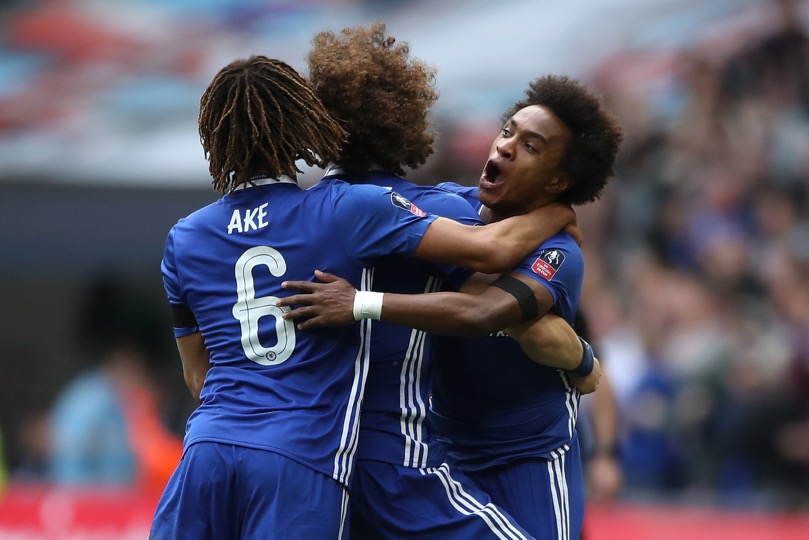
Chelsea coped better with their changes
The way the two teams have been built, the expectation was for Chelsea to struggle more with their adjustments. Not so. Perhaps informed by their wretched recent history on this ground, Spurs tiptoed into the game, prodding passes around awkwardly and surrendering possession meekly. It cost them: a lightning fast Chelsea break compelled Toby Alderweireld to fell Pedro on the edge of the box and Willian, deceiving Hugo Lloris, bent a free-kick into the right-hand corner.
Get FourFourTwo Newsletter
The best features, fun and footballing quizzes, straight to your inbox every week.
Minutes later, Michy Batshuayi might have added a second, drifting between his markers but thudding a limp header into the ground and into Lloris’s grasp.
Tottenham were creaking. Son’s lack of feel for his position exerted an obvious stress on Pochettino’s defence and fractures were opening all over their defensive third.
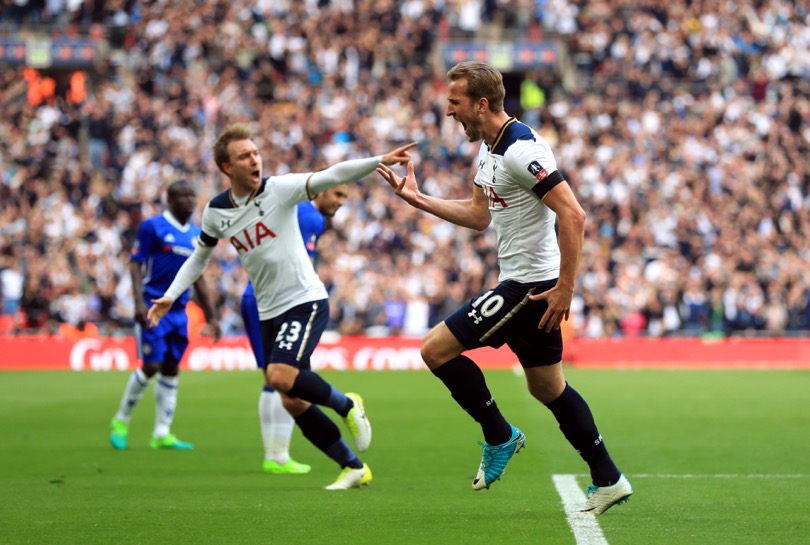
Tottenham's resilience only partly extends to important games
However, perhaps the true characteristic of this Tottenham - broken down and rebuilt over the past three years - is that they are no longer so susceptible to momentum. While the occasion clearly suffocated them in those early stages, they still found a way to breathe: Harry Kane, with his back to goal, deftly diverted a floated Christian Eriksen cross beyond Thibaut Courtois to level.
As was their thief-in-the-night win over Swansea, this wasn’t initially Spurs at their best, but it was still a showing of their excellence in execution and another major victory from a minor opportunity.
Back came Chelsea, though, presented with a new lead in a game that was slipping from their grasp by a moment of abject recklessness. Son, caught out of position as the ball broke inside the Tottenham box, lunged spiderishly at Victor Moses’s feet, inviting him to tumble and Martin Atkinson to point to the spot.
Willian, again, dispatched the dead ball with great class.
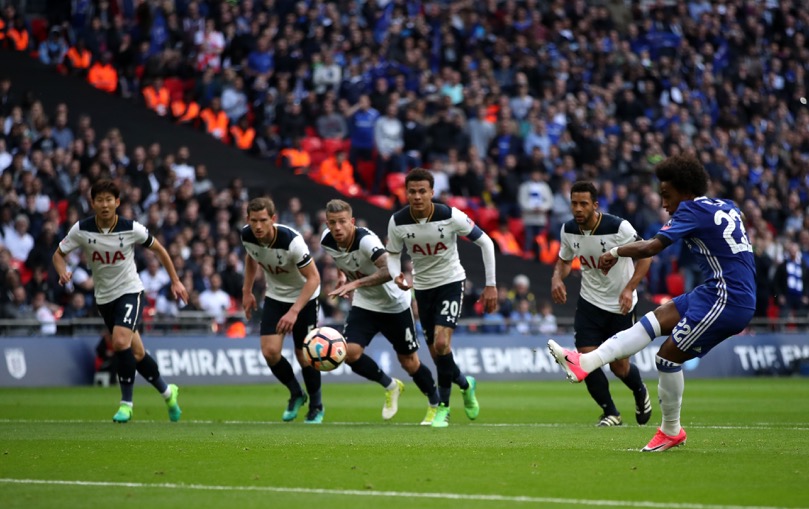
What a waste for Spurs. Having wrestled the match into their control, inattention cost them. Chelsea didn’t so much win the penalty as they were offered it. Perhaps because of a lack of positional familiarity, maybe just naivety. Whatever the cause, Moses was smarter than Son in those decisive seconds.
Tottenham have a wretched recent history in semi-finals and, until recently, most season-defining games. They are the club of self-inflicted wounds. The temptation becomes, then, to annotate each loss in the same way, and with the same set of pejorative witticisms.
Today, they offered a firm rebuttal early in the second half. Eriksen produced possibly the ball of his club's season, drifting a cross beyond the Chelsea backline and into Alli’s instep from 30 yards, with the soon-to-be Young Player Of The Year carving his first-time shot high into the net. A gorgeous piece of football to prick the swelling schadenfreude.
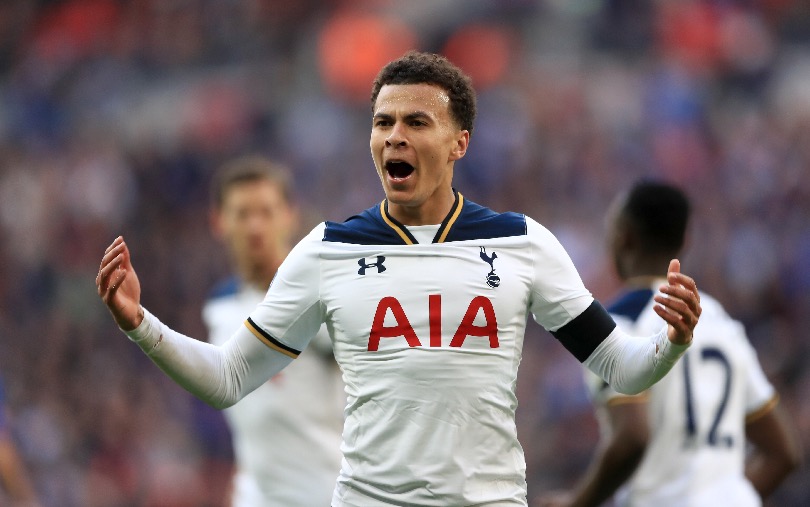
Conte's Chelsea are perfect marriage of nous and ability
Football is rarely convenient. It would be neat, for instance, if the game ended with Tottenham, the Premier League side who have won the most points from losing positions this season, capping their two comebacks with a winning goal. It wasn't to be: Chelsea's pockets of class saw to that. Eden Hazard, a second-half substitute who was part of a smart recalibration by Conte, fizzed his side back into the lead after a corner wasn't properly cleared. Then, the back-breaker - and what will prove this game's lasting symbol. Nemanja Matic connecting purely from distance, sent a shot crashing in off the bar and Chelsea into the final. A thunderous exclamation point and a moment which encapsulated what Conte has built. An organised and resilient side, certainly, but an utterly ruthless one too.
In retrospect, it will be a game of regret for Pochettino and his players. Long periods of possessional and territorial superiority didn't translate to hard currency, whereas their opponents efficiently turned water into wine. They survived on handouts, true, but also on decisive counter-attacking play, their manager's smart recognition of his side's weaknesses, and - of course - the decadent ability with which they're blessed.
Truly, these are the best two teams in the country and, without question, this was how FA Cup semi-finals are supposed to look.
Seb Stafford-Bloor is a football writer at Tifo Football and member of the Football Writers' Association. He was formerly a regularly columnist for the FourFourTwo website, covering all aspects of the game, including tactical analysis, reaction pieces, longer-term trends and critiquing the increasingly shady business of football's financial side and authorities' decision-making.
